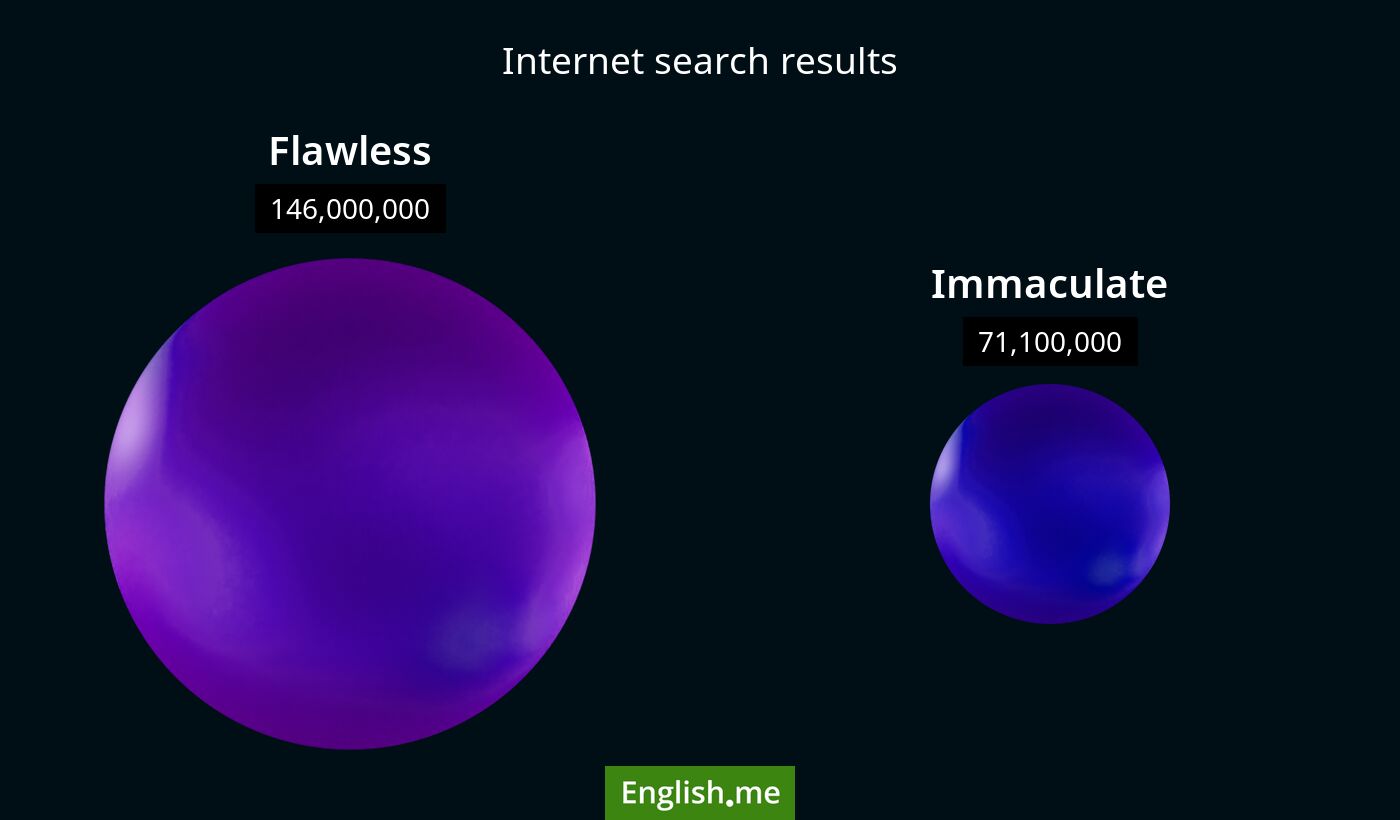Exploring perfection: the nuances of "flawless" vs. "immaculate"
Reviewed and edited by  Lloyd Cooper 17/10/2024, 18:38
Lloyd Cooper 17/10/2024, 18:38
English.me team member

 What is similar?
What is similar?
Both "flawless" and "immaculate" describe something that is perfect, pristine, or without any defects.
 What is different?
What is different?
While "flawless" focuses on the absence of defects or imperfections and is often used in contexts like beauty, performance, or execution, "immaculate" emphasizes cleanliness, purity, or being without any stains and can relate to both physical and moral contexts.
 Which one is more common?
Which one is more common?

 Examples of usage
Examples of usage
Flawless- Her performance was flawless; not a single mistake was made.
- The diamond was flawless, without any visible inclusions.
- He delivered a flawless speech that captivated the audience.
- The house was immaculate after the thorough cleaning.
- She appeared in an immaculate white dress.
- His behavior was always immaculate, never offending anyone.

 English
English español
español française
française italiano
italiano deutsche
deutsche 日本語
日本語 polski
polski česky
česky svenska
svenska Türkçe
Türkçe Nederlands
Nederlands